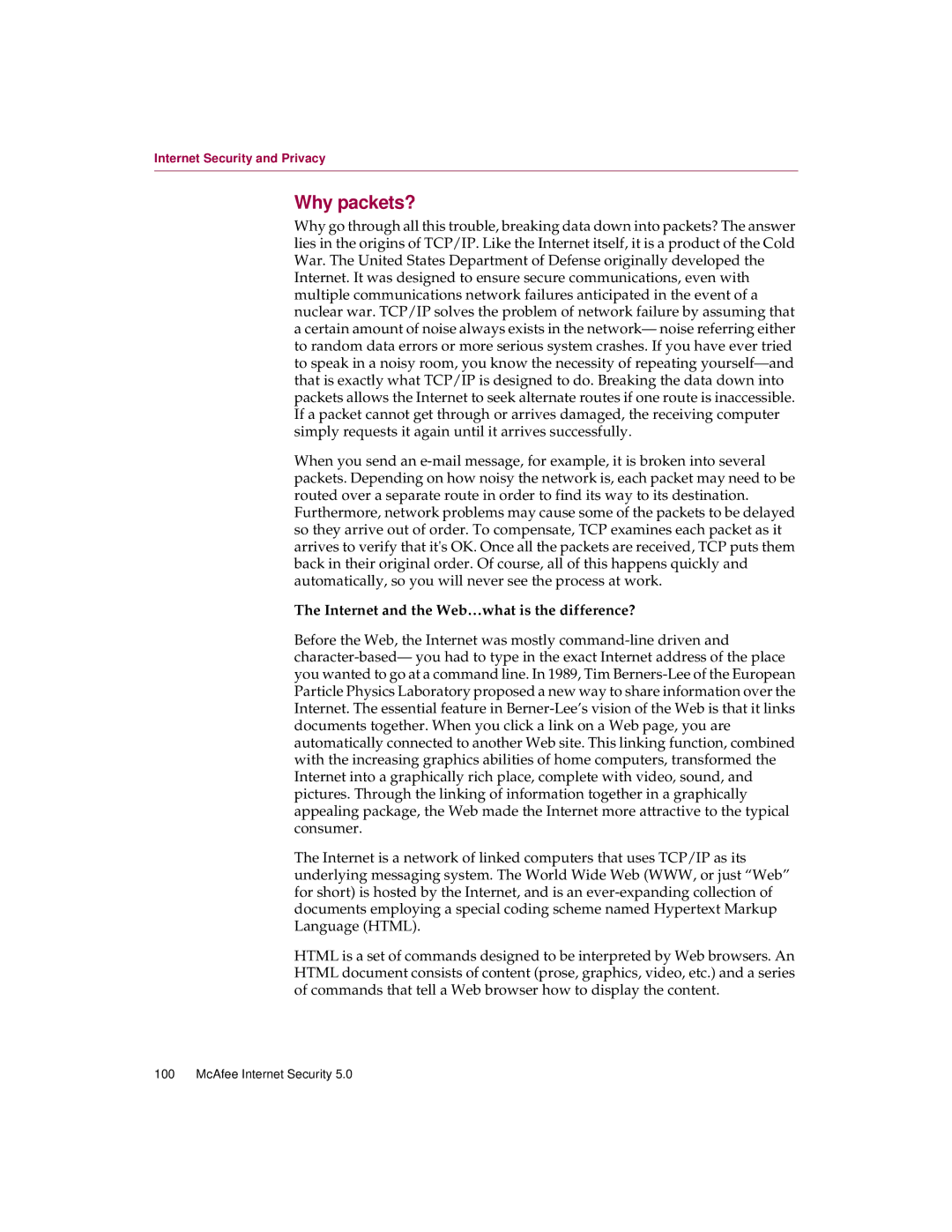Internet Security and Privacy
Why packets?
Why go through all this trouble, breaking data down into packets? The answer lies in the origins of TCP/IP. Like the Internet itself, it is a product of the Cold War. The United States Department of Defense originally developed the Internet. It was designed to ensure secure communications, even with multiple communications network failures anticipated in the event of a nuclear war. TCP/IP solves the problem of network failure by assuming that a certain amount of noise always exists in the network— noise referring either to random data errors or more serious system crashes. If you have ever tried to speak in a noisy room, you know the necessity of repeating
When you send an
The Internet and the Web…what is the difference?
Before the Web, the Internet was mostly
The Internet is a network of linked computers that uses TCP/IP as its underlying messaging system. The World Wide Web (WWW, or just “Web” for short) is hosted by the Internet, and is an
HTML is a set of commands designed to be interpreted by Web browsers. An HTML document consists of content (prose, graphics, video, etc.) and a series of commands that tell a Web browser how to display the content.
100 McAfee Internet Security 5.0
